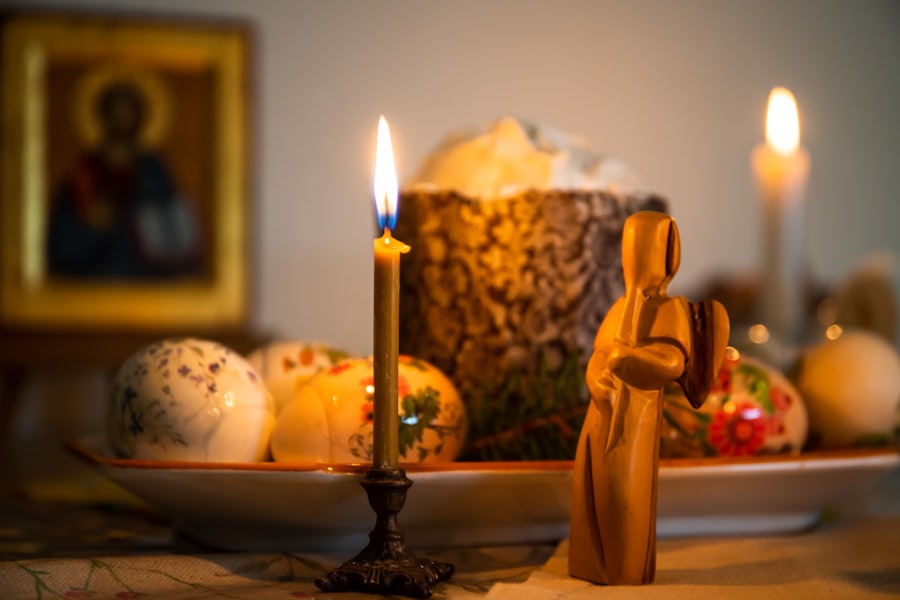Chickens have specific requirements for optimal health and well-being, particularly during winter. These include adequate warmth, shelter from harsh weather, and consistent access to food and water. Winter poses unique challenges for chickens, as they are vulnerable to frostbite and respiratory infections in cold temperatures.
The reduced daylight hours can also impact their egg production. Providing a warm, dry environment is crucial for maintaining chicken health in winter. Chickens are more susceptible to cold than commonly believed, and extended exposure can lead to various health issues.
To ensure their comfort and well-being, it is essential to provide proper shelter, insulation, and heating. Furthermore, chickens’ nutritional and hydration needs may vary during winter, necessitating adjustments to their feeding and watering regimens. By addressing these factors, chicken owners can promote the health and contentment of their flock throughout the winter season.
Table of Contents
- 1 Providing adequate shelter for chickens
- 2 Insulating the chicken coop
- 3 Using heat lamps or heaters
- 4 Providing warm bedding
- 5 Adjusting feeding and watering routines
- 6 Monitoring the health of your chickens
- 7 FAQs
- 7.1 What are the best ways to keep chickens warm in winter?
- 7.2 How can I insulate my chicken coop for winter?
- 7.3 Is it safe to use heat lamps or heated pads for chickens in winter?
- 7.4 What temperature is too cold for chickens in winter?
- 7.5 How can I ensure good ventilation in the chicken coop during winter?
Key Takeaways
- Chickens need extra care in winter due to their susceptibility to cold temperatures
- Adequate shelter should be provided to protect chickens from harsh weather conditions
- Insulating the chicken coop can help maintain a comfortable temperature for the chickens
- Heat lamps or heaters can be used to provide additional warmth in the coop
- Warm bedding such as straw or wood shavings can help keep chickens comfortable and insulated
- Feeding and watering routines may need to be adjusted to ensure chickens have enough energy and hydration
- Regularly monitor the health of your chickens to ensure they are coping well with the winter conditions
Providing adequate shelter for chickens
Key Features of a Well-Built Coop
It’s important to ensure that the coop is well-ventilated to prevent moisture buildup, but also draft-free to keep the chickens warm. The coop should also be spacious enough to allow the chickens to move around comfortably and have enough space to roost.
Coop Maintenance is Crucial
Additionally, it’s important to regularly clean the coop to prevent the buildup of moisture and ammonia, which can lead to respiratory issues.
Providing a Safe and Healthy Outdoor Run
In addition to a well-built coop, it’s important to provide your chickens with a secure outdoor run where they can get some fresh air and exercise. The run should be protected from predators and have a roof or cover to shield the chickens from rain and snow. Providing your chickens with access to an outdoor run will help prevent boredom and reduce stress, which can be particularly beneficial during the winter months when they may spend more time indoors. By providing adequate shelter for your chickens, you can help them stay warm, dry, and healthy throughout the winter.
Insulating the chicken coop

Insulating the chicken coop is an effective way to help keep your flock warm during the winter months. Proper insulation can help retain heat and prevent drafts, creating a more comfortable environment for your chickens. There are several ways to insulate a chicken coop, including adding insulation to the walls, ceiling, and floor.
Insulation materials such as foam board, fiberglass batts, or straw bales can be used to help retain heat and keep out cold drafts. In addition to insulating the coop itself, it’s important to pay attention to other areas that may need insulation, such as windows, doors, and vents. These areas can be sources of drafts and heat loss if not properly sealed and insulated.
By taking the time to properly insulate your chicken coop, you can help create a more comfortable environment for your flock during the winter months. This can help prevent health issues such as frostbite and respiratory problems, and also help maintain egg production during the colder months.
Using heat lamps or heaters
In some cases, providing supplemental heat with heat lamps or heaters may be necessary to keep your chickens warm during particularly cold spells. Heat lamps can be hung in the coop to provide additional warmth, especially during the night when temperatures drop. It’s important to use caution when using heat lamps, as they can be a fire hazard if not properly installed and monitored.
Additionally, it’s important to ensure that the heat source is positioned in a way that prevents direct contact with the chickens or flammable materials. Another option for providing supplemental heat is using a radiant heater designed specifically for chicken coops. These heaters are designed to provide consistent warmth without posing a fire hazard.
They can be particularly useful in larger coops where heat lamps may not provide enough coverage. When using any type of supplemental heat source, it’s important to monitor the temperature in the coop regularly to ensure that it stays within a safe range for your chickens. By using heat lamps or heaters when necessary, you can help ensure that your chickens stay warm and healthy during the winter months.
Providing warm bedding
Providing warm bedding is essential for keeping your chickens comfortable and warm during the winter months. Bedding materials such as straw, hay, or wood shavings can help insulate the coop and provide a comfortable surface for your chickens to roost on. It’s important to regularly clean and replace bedding to prevent moisture buildup and keep the coop dry.
In addition to providing bedding in the coop, it’s also important to provide nesting material in the nesting boxes. This will help keep eggs warm and prevent them from freezing in cold temperatures. By providing warm bedding throughout the coop, you can help create a more comfortable environment for your flock during the winter months.
Adjusting feeding and watering routines

Adjusting Feeding Routines
During the winter months, it’s essential to adjust your chickens’ feeding routines to ensure they receive sufficient nutrients and energy to stay warm. A high-quality feed that is higher in protein and energy is crucial to help them cope with the cold temperatures.
Access to Fresh Water
Providing access to fresh water is vital, as chickens can become dehydrated quickly in cold weather. It’s essential to check waterers regularly and provide fresh water multiple times a day if necessary.
Preventing Water Freezing
In colder temperatures, waterers may freeze quickly. To prevent this, you can use heated waterers or add insulation around waterers. Additionally, providing warm water (not hot) can encourage your chickens to drink more in cold weather.
By making these adjustments to feeding and watering routines, you can help ensure your chickens stay healthy and well-nourished throughout the winter.
Monitoring the health of your chickens
Monitoring the health of your chickens is crucial during the winter months when they may be more susceptible to health issues such as frostbite and respiratory problems. It’s important to regularly check your flock for signs of illness or injury, such as lethargy, decreased appetite, or difficulty breathing. Additionally, it’s important to check for signs of frostbite on their combs, wattles, and feet.
Regularly cleaning the coop and providing a clean environment for your chickens can also help prevent health issues. By monitoring the health of your flock regularly and addressing any issues promptly, you can help ensure that your chickens stay healthy throughout the winter months. If you notice any signs of illness or injury, it’s important to consult with a veterinarian who specializes in poultry health for guidance on treatment and prevention strategies.
In conclusion, understanding the needs of chickens in winter is crucial for ensuring their health and well-being during the colder months. Providing adequate shelter, insulation, supplemental heat when necessary, warm bedding, adjusting feeding and watering routines, and monitoring their health are all important aspects of caring for chickens in winter. By taking proactive measures to address these needs, you can help ensure that your flock stays healthy and comfortable throughout the winter months.
If you’re looking for tips on how to keep chickens warm in winter, you may also be interested in learning about the mating season for ducks. Check out this article to learn more about duck breeding and how to care for ducks during their mating season. Understanding the natural behaviors of ducks can help you provide the best care for your flock during the colder months.
FAQs
What are the best ways to keep chickens warm in winter?
Some of the best ways to keep chickens warm in winter include providing a well-insulated coop, using heat lamps or heated pads, and ensuring good ventilation while avoiding drafts.
How can I insulate my chicken coop for winter?
You can insulate your chicken coop for winter by adding extra bedding, sealing any drafts, and using insulating materials such as foam board or straw bales.
Is it safe to use heat lamps or heated pads for chickens in winter?
It can be safe to use heat lamps or heated pads for chickens in winter, but it’s important to follow safety guidelines and ensure that the heating devices are securely installed to prevent fire hazards.
What temperature is too cold for chickens in winter?
Chickens can tolerate cold temperatures, but it’s generally recommended to provide supplemental heat if the temperature drops below 20°F (-6°C) to ensure their comfort and well-being.
How can I ensure good ventilation in the chicken coop during winter?
You can ensure good ventilation in the chicken coop during winter by providing adjustable vents, using a ridge vent, and keeping the coop clean to prevent moisture buildup.
Meet Walter, the feathered-friend fanatic of Florida! Nestled in the sunshine state, Walter struts through life with his feathered companions, clucking his way to happiness. With a coop that’s fancier than a five-star hotel, he’s the Don Juan of the chicken world. When he’s not teaching his hens to do the cha-cha, you’ll find him in a heated debate with his prized rooster, Sir Clucks-a-Lot. Walter’s poultry passion is no yolk; he’s the sunny-side-up guy you never knew you needed in your flock of friends!







